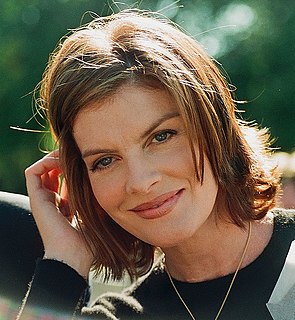A Quote by Sigmund Freud
The creative writer does the same as the child at play; he creates a world of fantasy which he takes very seriously.
Related Quotes
The dynamic principle of fantasy is play, a characteristic also of the child, and as such it appears inconsistent with the principle of serious work. But without this playing with fantasy no creative work has ever yet come to birth. The debt we owe to the play of imagination is incalculable. It is therefore short-sighted to treat fantasy, on account of its risky or unacceptable nature, as a thing of little worth.
I'm a fantasy writer, called a fantasy writer. But there's very little, apart from one or two basic concepts in 'I Shall Wear Midnight,' which are in fact fantasy. You have sticks that fly, but they're practical broomsticks, with a bloody great strap that you can hold on to so you don't fall off. And you try not to use them too often.
Play, Incorporating Animistic and Magical Thinking Is Important Because It:
Fosters the healthy, creative and emotional growth of a child;
Forms the best foundation for later intellectual growth.
Provides a way in which children get to know the world and creates possibilities for different ways of responding to it.
Fosters empathy and wonder.
When speaking to parents, I encourage them to take their child(ren) to a children's museum and watch carefully what the child does, how she/she does it, what he/she returns to, where there is definite growth. Teachers could do the same or could set up 'play areas' which provide 'nutrition' for different intelligences... and watch carefully what happens and what does not happen with each child.
A mother should have some fantasy about her child's future. It will increase her interest in the child, for one thing. To turn the fantasy into a program to make the child fly an airplane across the country, for example, isn't the point. That's the fulfillment of the parent's own dreams. That's different. Having a fantasy - which the child will either seek to fulfill or rebel against furiously - at least gives a child some expectation to meet or reject.
No player in the NBA was born wanting to play basketball. The desire to play ball or to read must be planted. The last 25 years of research show that reading aloud to a child is the oldest, cheapest and must successful method of instilling that desire. Shooting baskets with a child creates a basketball player; reading to a child creates a reader.
Our brain comes hard-wired with an urge to play, one that hurls us into sociability. A child's play both demands and creates its own safe space, one in which she can confront threats, fears, and dangers, but always come through whole. Play offers a child a natural way to manage feared separations or abandonment, rendering them instead opportunities for mastery and self-discovery.


































